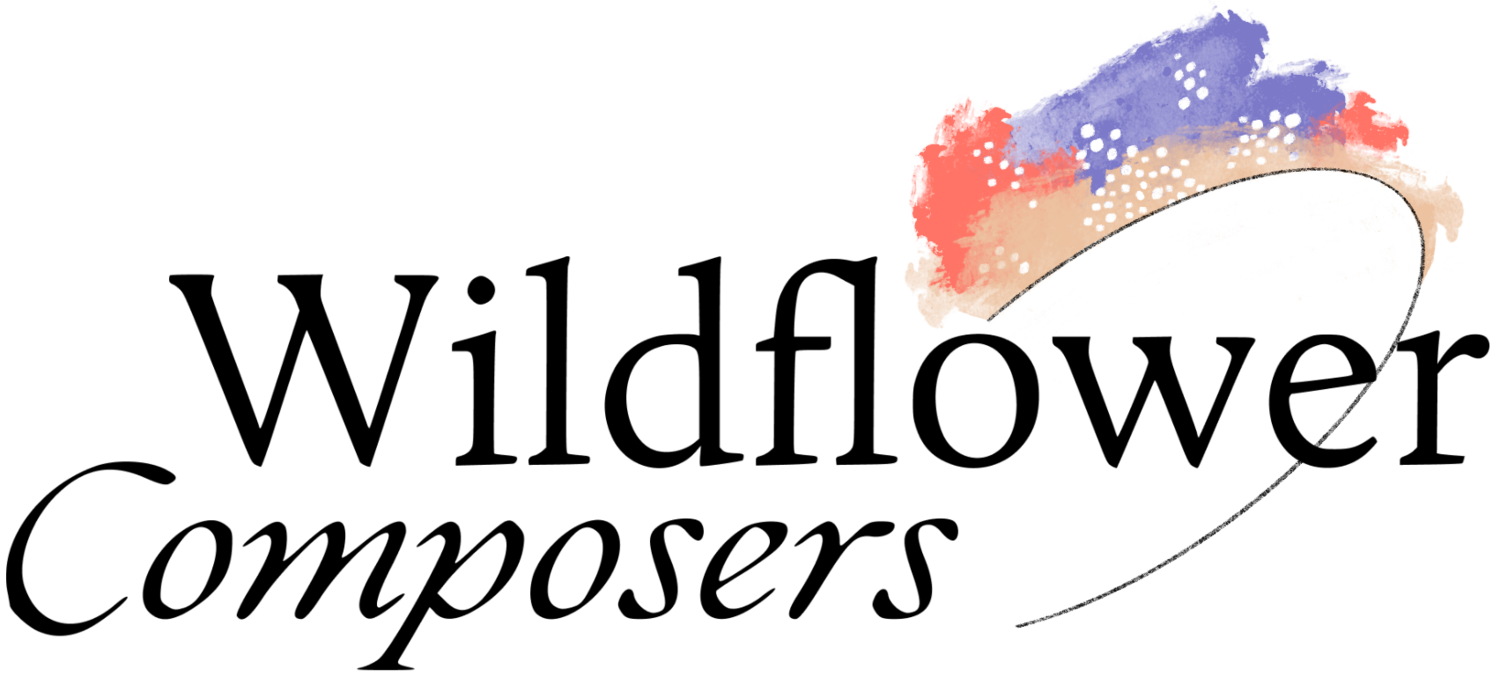Announcing: Virtual Mini-Courses!
New Program Alert
Announcing… Virtual Mini-Courses!
We are thrilled to announce a brand new Wildflower program: our Virtual Mini-Courses! We are so excited to return to offering accessible virtual programming to a global audience of early-career composers.
Each six-week virtual-mini course will focus on a different topic in composition. No composition experience necessary & no need to be a Wildflower alum to apply.
Through our new virtual mini-courses, we hope to:
Provide resources and mentorship to a broader coalition of young female, transgender, nonbinary, and genderqueer composers;
Remove barriers to access, such as experiential, geographic, or financial limitations;
Take deeper dives into specific subfields of composition;
Provide year-round access to high-quality composition education, mentorship, and community.
Eligible participants are female, transgender, nonbinary, and/or genderqueer composers who are just beginning their compositional journeys or are in the early stages of their professional careers. The minimum age to participate is 13. There is no maximum age to participate, but we expect that the majority of participants will be between the ages of 13 and 25.
Admissions are rolling, and need-based financial aid (including many full scholarships!) is available. There is no fee to apply.
Our 2023 courses
Beyond the Double Bar: Building a Composing Career
with Dr. Melissa Dunphy
Tuesdays. 7–8:30pm eastern
April 25 – May 30
Your average music composition education teaches you to write music, but what's next?
This course is intended for any early-career composer who wishes to learn more about the nuts-and-bolts side of being a professional composer. Seminars will cover topics such as:
Identifying your audience
Creating a profile and public image
Networking
Legal paperwork (contracts, etc.)
How to get commissions and make a living as a composer
This overview course is perfect for anyone who wants to know more about how to build a composing career and succeed as a freelancer.
Introduction to Film Scoring
with Prof. Alison Plante & Berklee Online
Tuesdays, 7–8:30pm eastern
September 5 – October 10
Curious about the world of film scoring? Take this mini-course to learn from the best!
In this introduction to scoring for film and television, you will be invited to explore all aspects of this amazing art form, in particular the nature of the collaboration between a composer and a director/producer as the score supports their vision, world-building, and storytelling. Each workshop will combine an exploration of the aesthetics and the process of scoring, with weekly topics including:
Source, underscore, songscore, and the functions music can serve in a film/TV show
"Behind a scene" - the process of scoring a cue from concept to delivery
The filmmaking/TV production process
The composer's team and "a week in the life"
How to make a living as a composer for media: from college programs to professional career paths
Student work screenings
Students can opt to complete scoring challenges or bring their own work for peer and teacher feedback; this is an optional component of this workshop series, and no scoring background is required to participate.
Humans and Computers: Interactivity in Electronic Music
with Dr. Flannery Cunningham & SPLICE
Wednesday evenings, 7:30–9pm eastern
October 12 – November 15
Enhance your composing skills by learning about MAX/MSP and the world of interactive electronics.
In this mini-course, we’ll explore the possibilities of combining these two worlds by creating music that uses electronic sounds or techniques, but which is performed by a human performer. Weekly topics will include:
Processing live microphone inputs (pitch shifts, delays, filtering, and other techniques to affect sound)
Extracting real-time audio data about players/singers performances – what note(s) are they playing? How loudly? How fast/slow?
Mapping data to outputs, including sample playback
Creating electronic interfaces and “instruments”
Using electronic tools for timbral and other kinds of analysis—how can electronic tools help us in the compositional process?
All emerging composers are welcome, regardless of prior experience with electronics.
By the end of the course, all participants will create a Max patch that they can perform or compose with. Participants who have previous experience with Max are also welcome to bring in prior work for technical and creative feedback.
Our application is live and admissions are rolling for all of our 2023 courses, so make sure to apply soon to ensure your spot. Each course can admit a maximum of 20 students.
We hope to see you on Zoom!
Wildflower Composers
